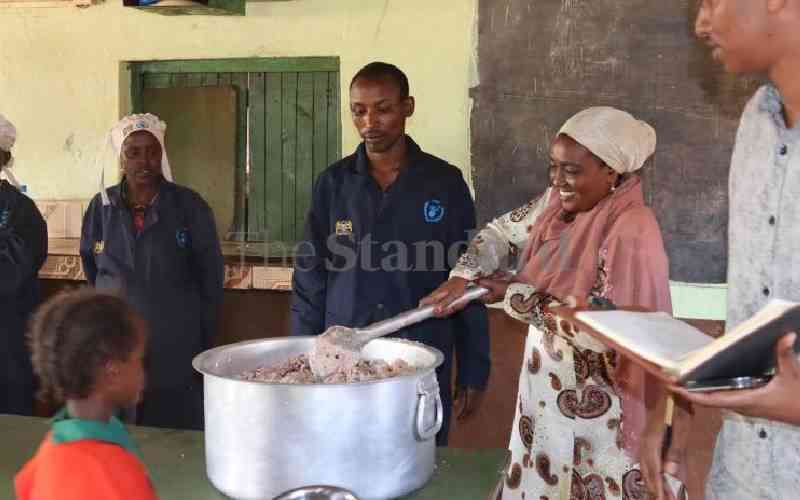×
The Standard e-Paper
Stay Informed, Even Offline

"Uji! uji! uj! (porridge! porridge! porridge!)"-these are the chants of three excited Early Childhood Development (ECD) pupils at Gar Qarsa Primary and Junior Secondary School, in Marsabit county, as they run to the school kitchen, carrying their cups.
They then queue to partake their porridge at 11am. For some of them, this is the first meal of the day, while for others, this is the first meal in 24 hours after the lunch they had at school the previous day. These children come from poor families.